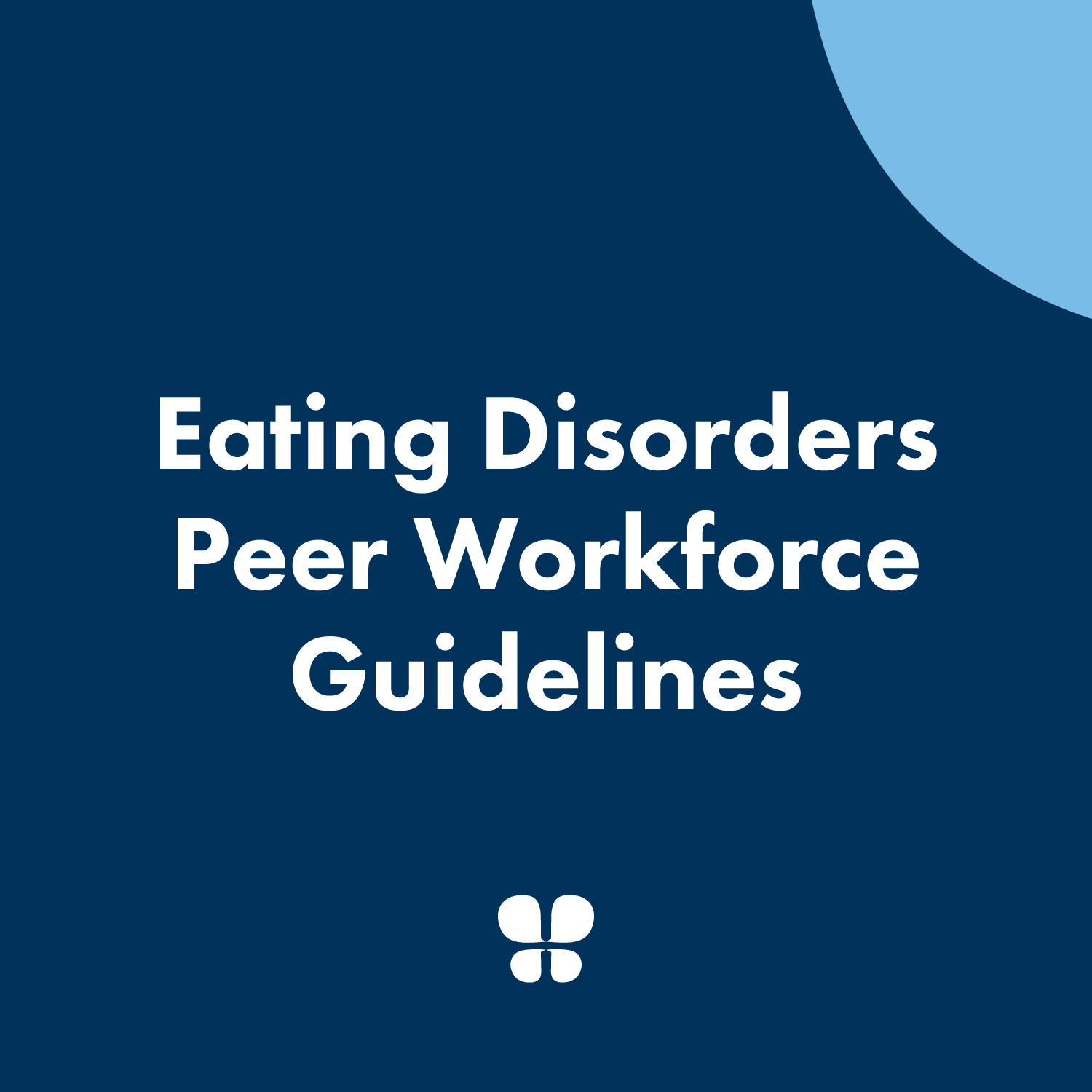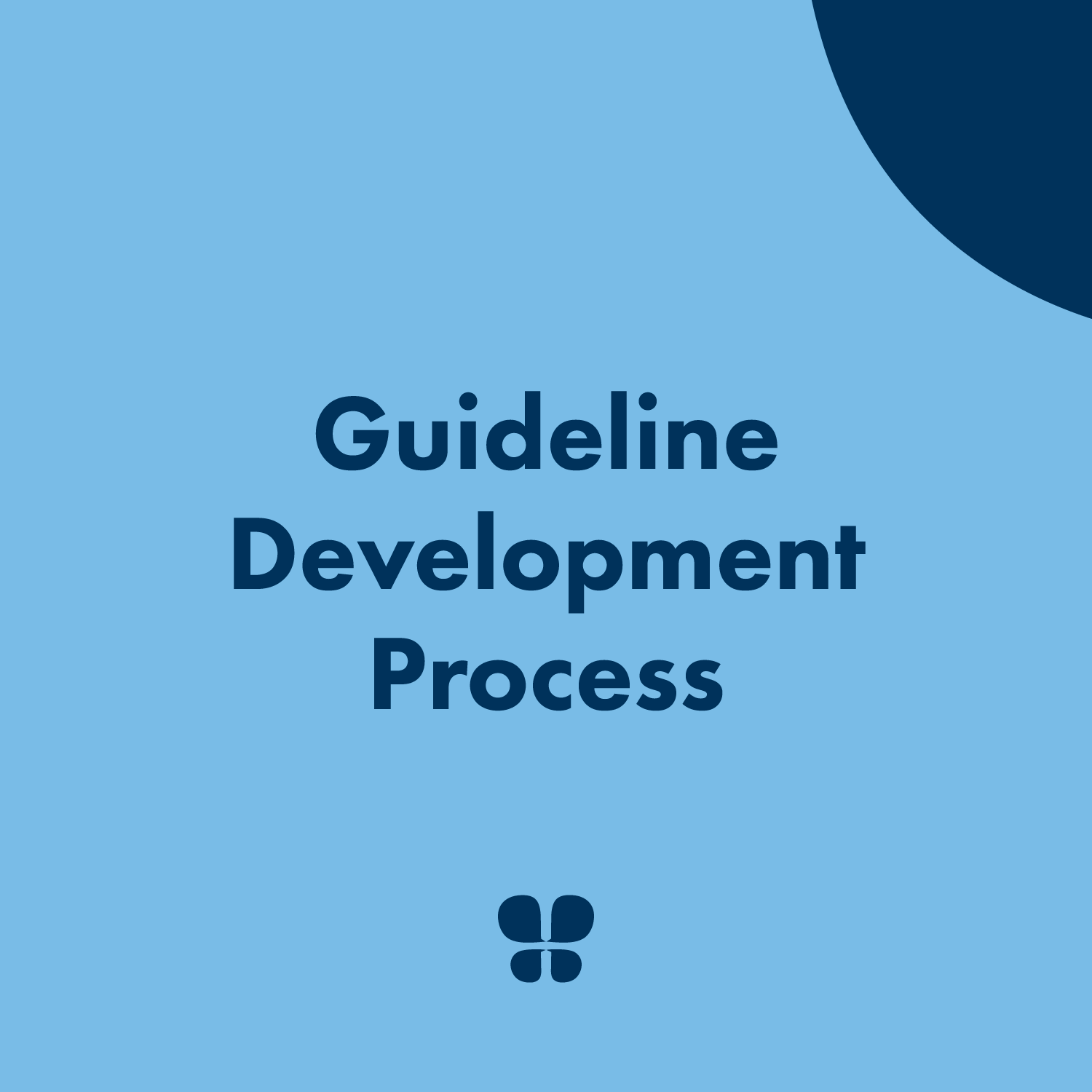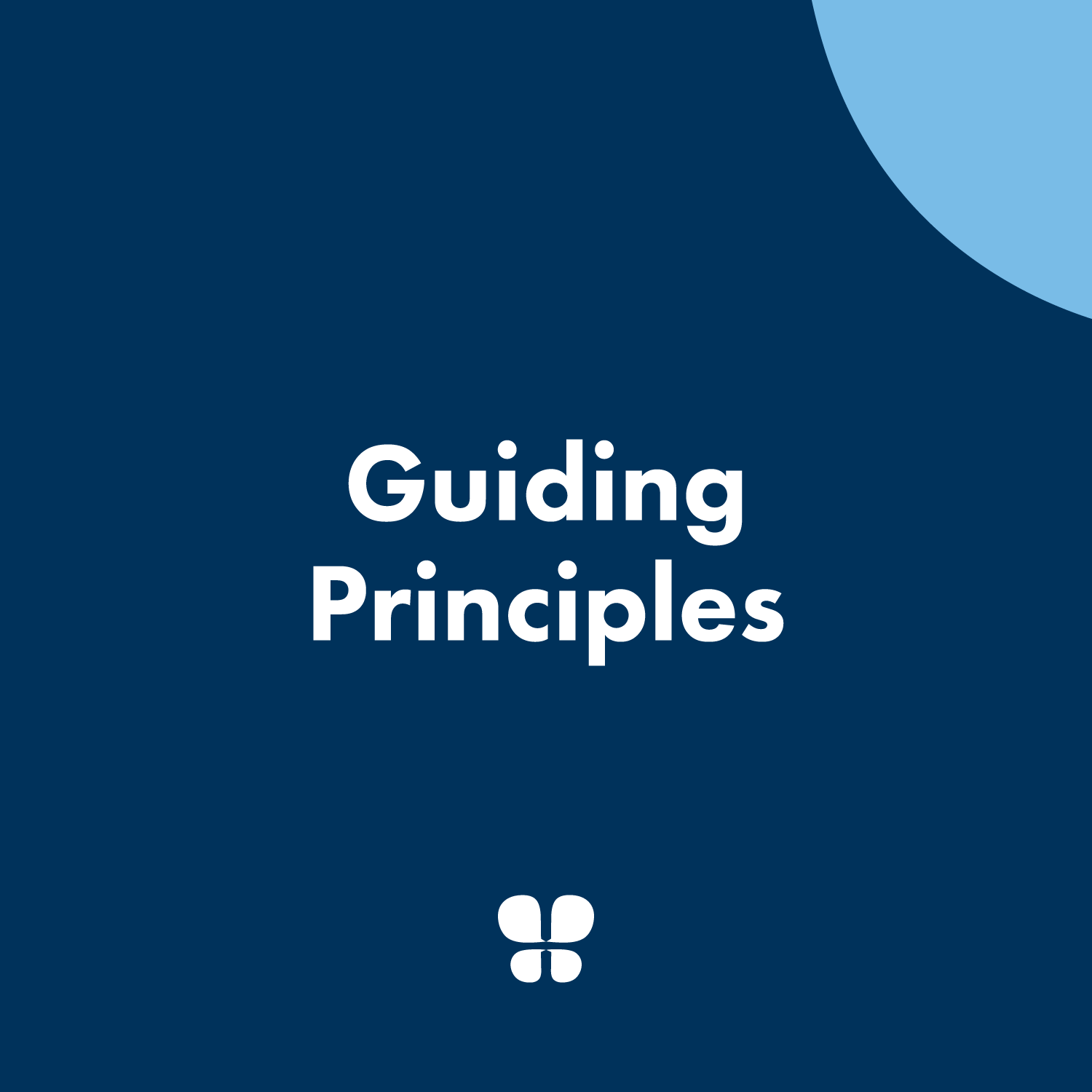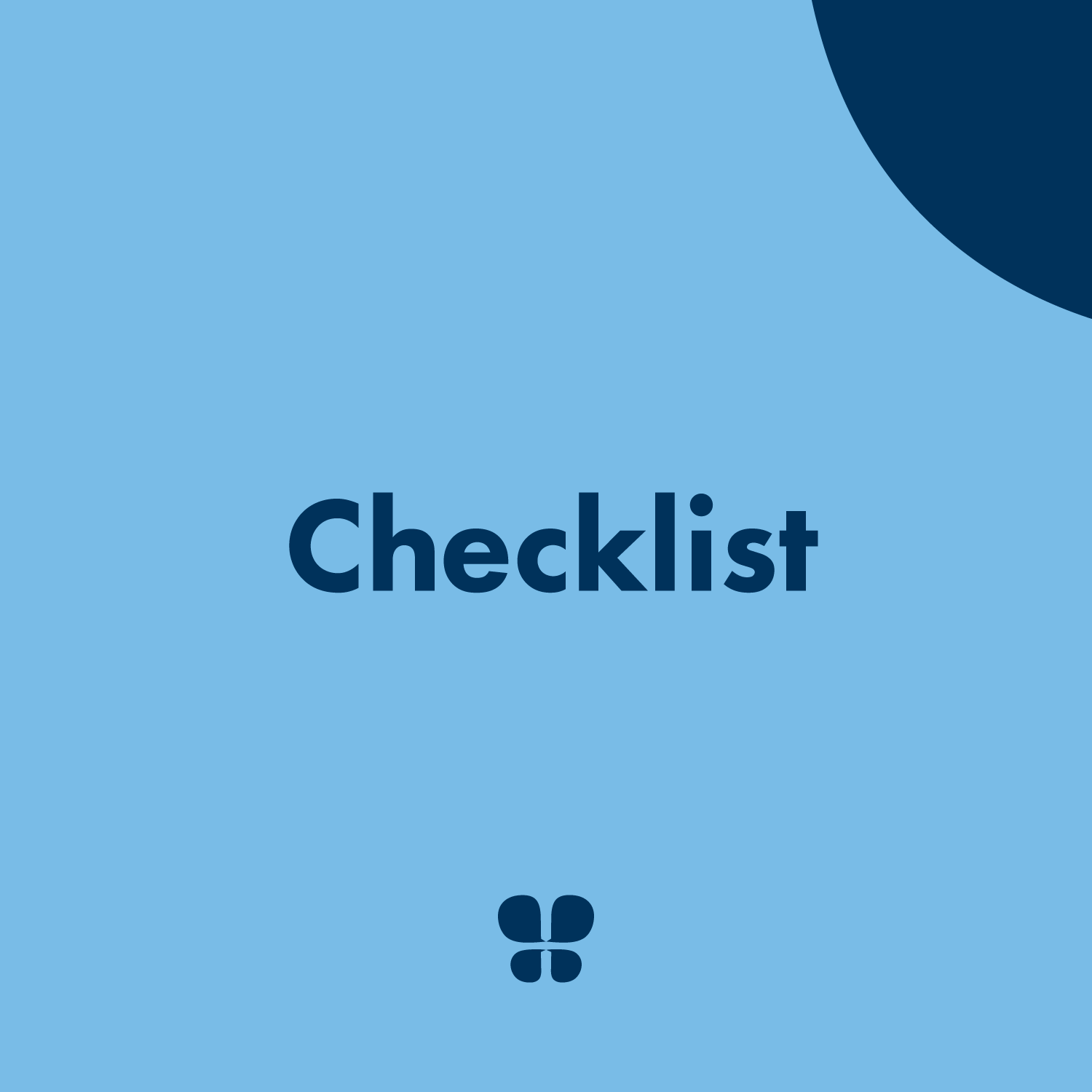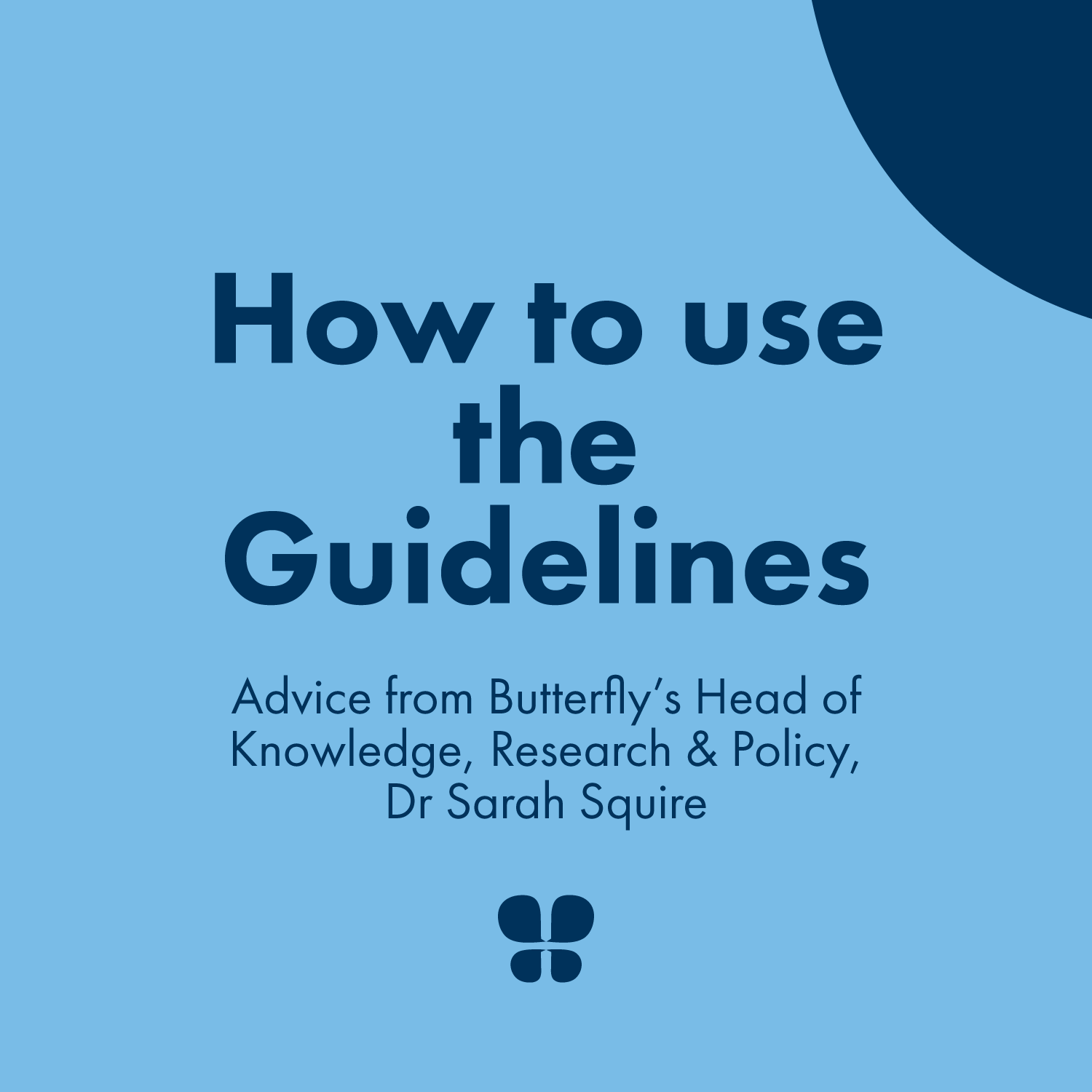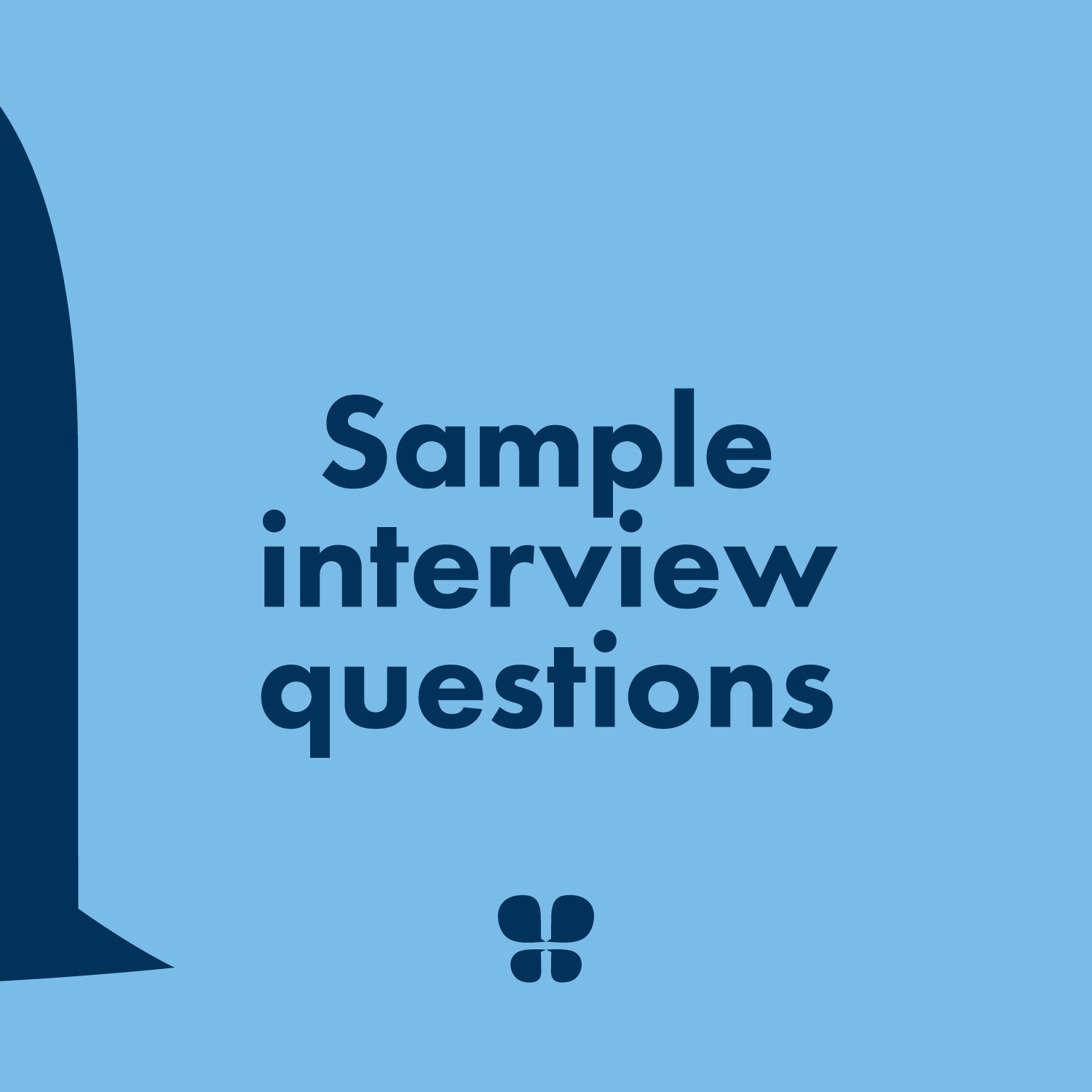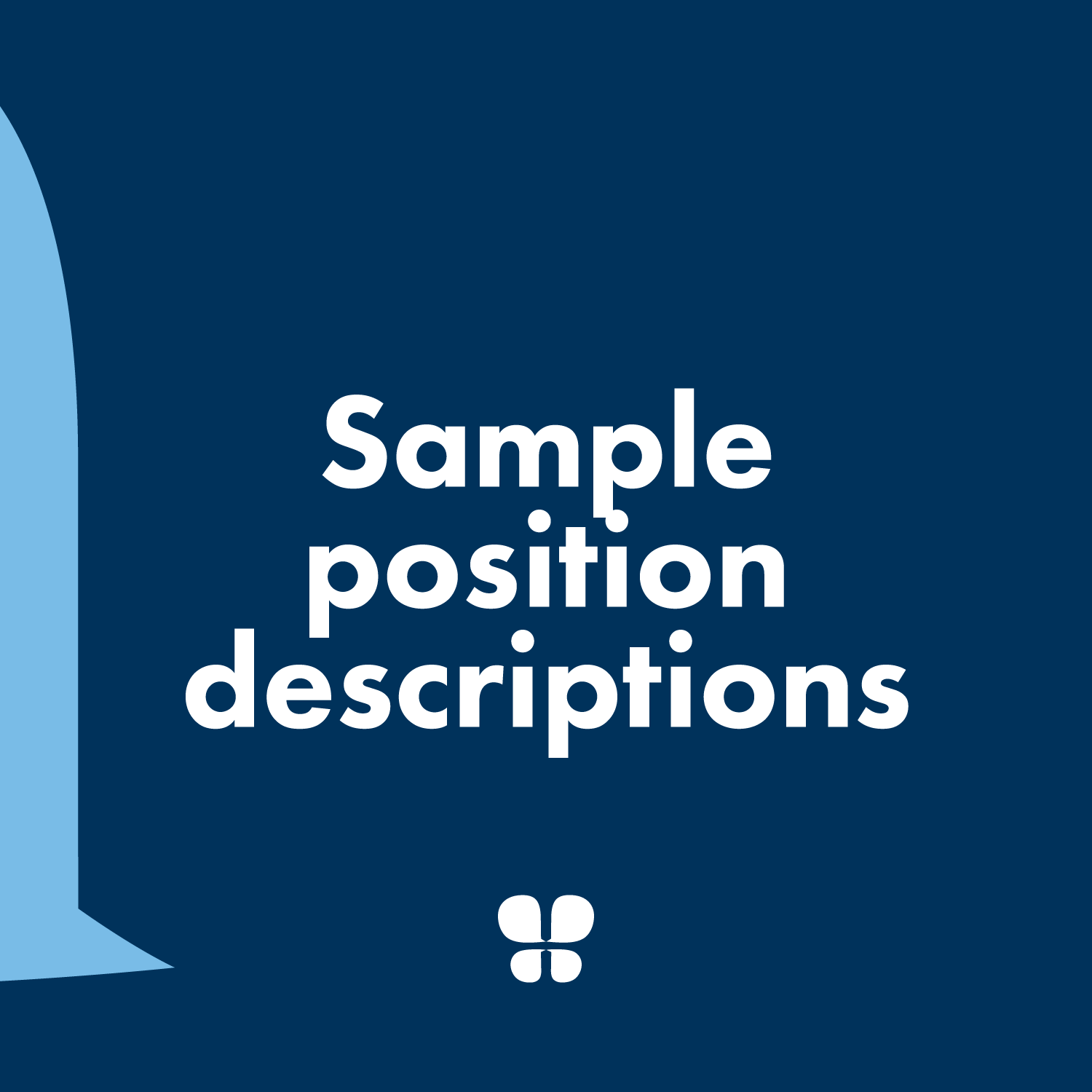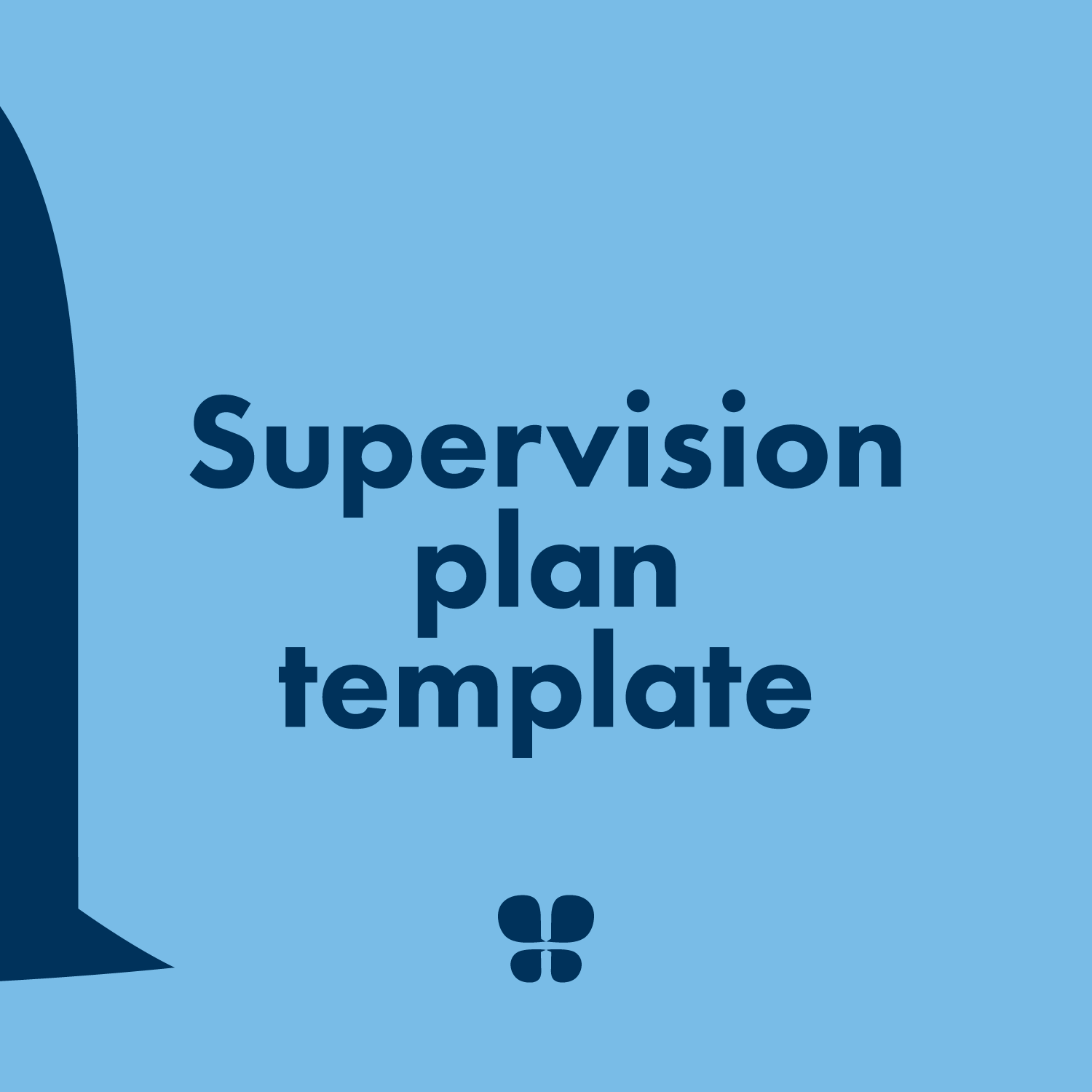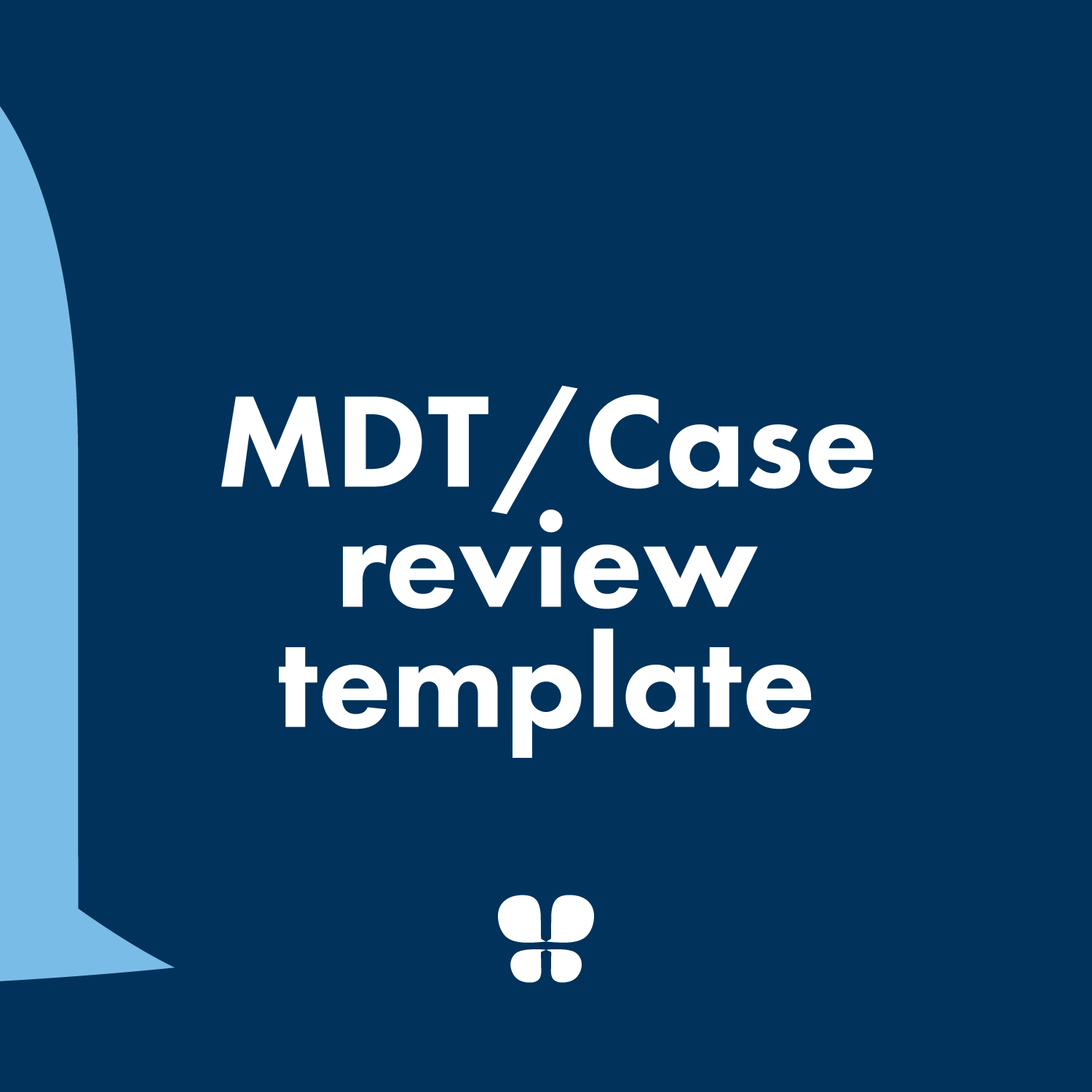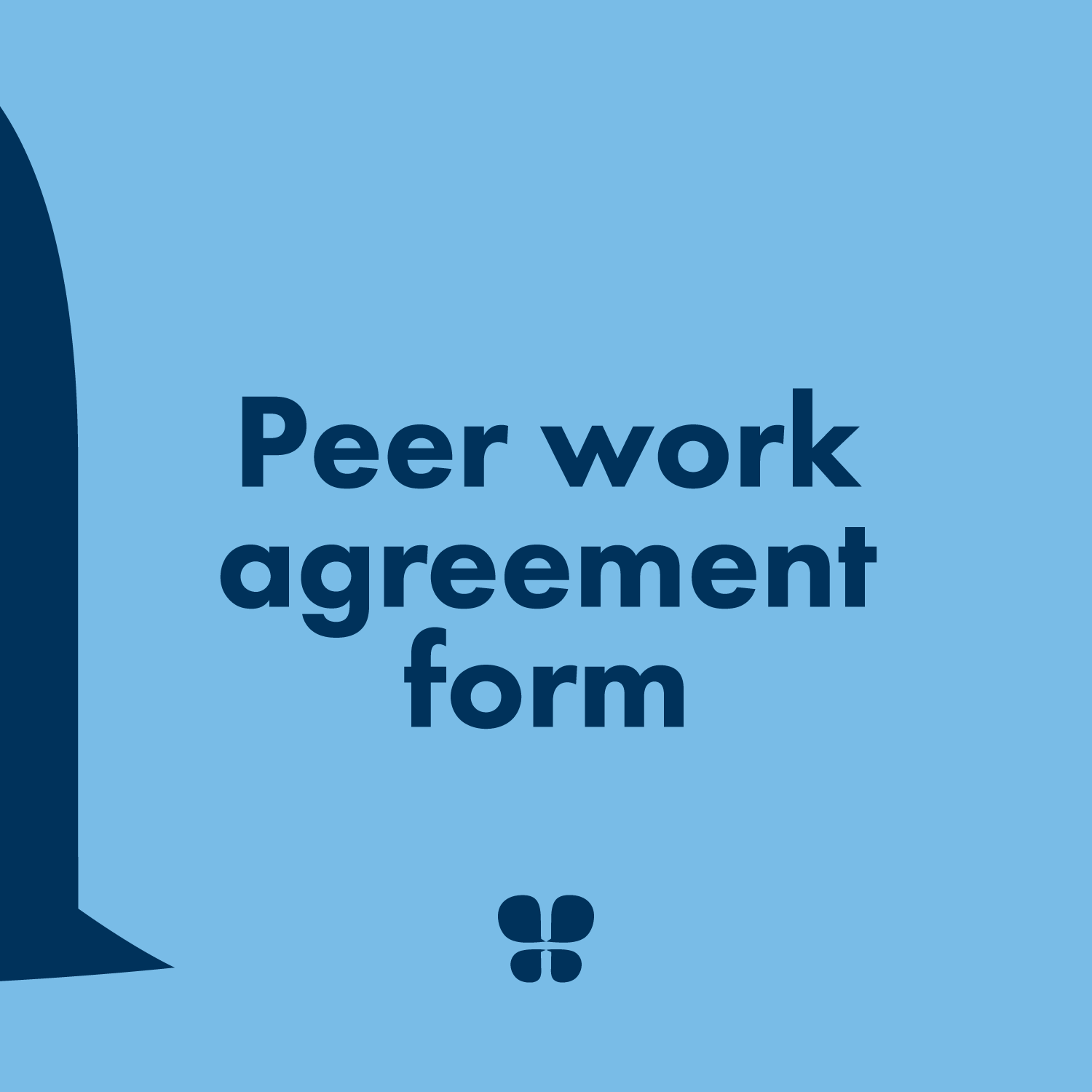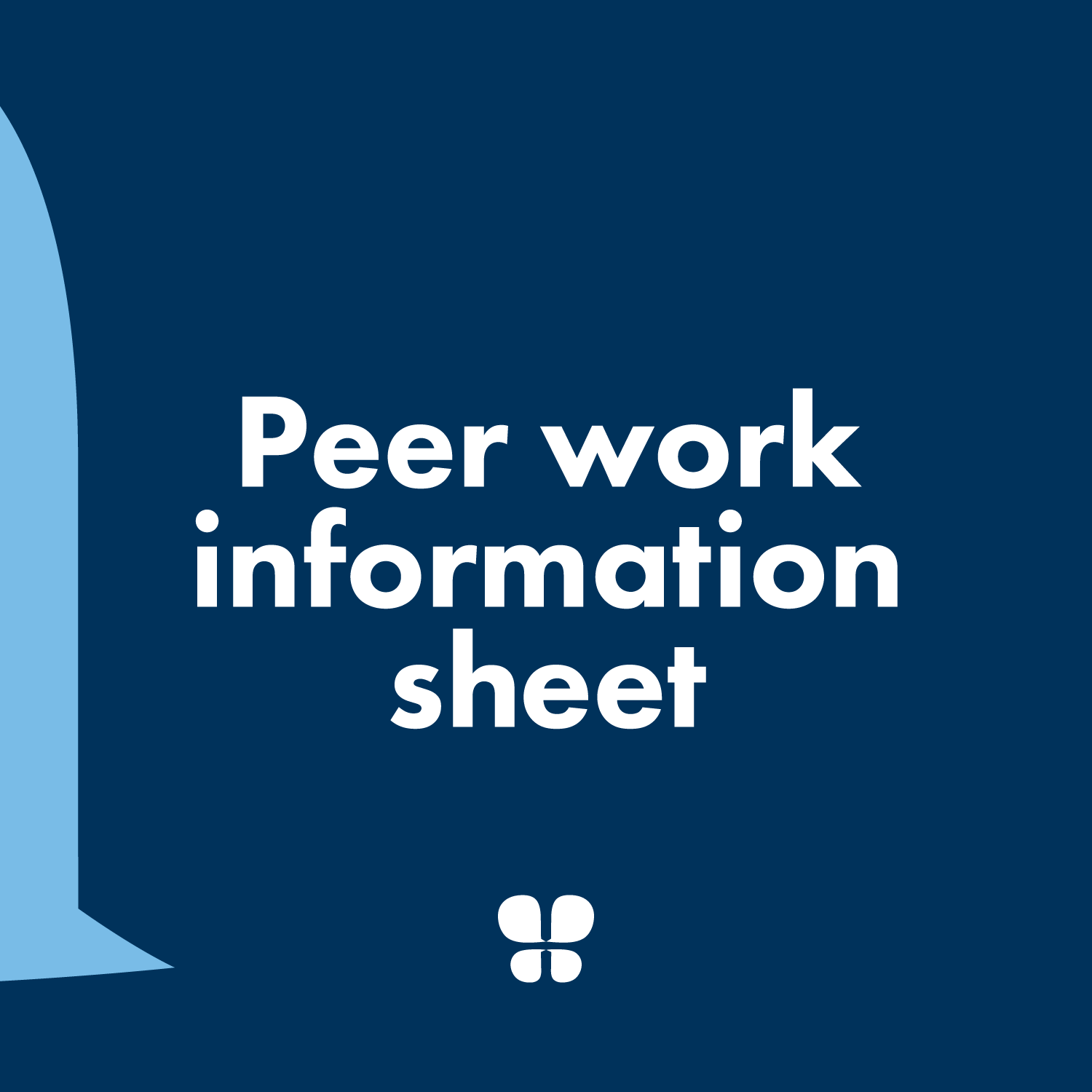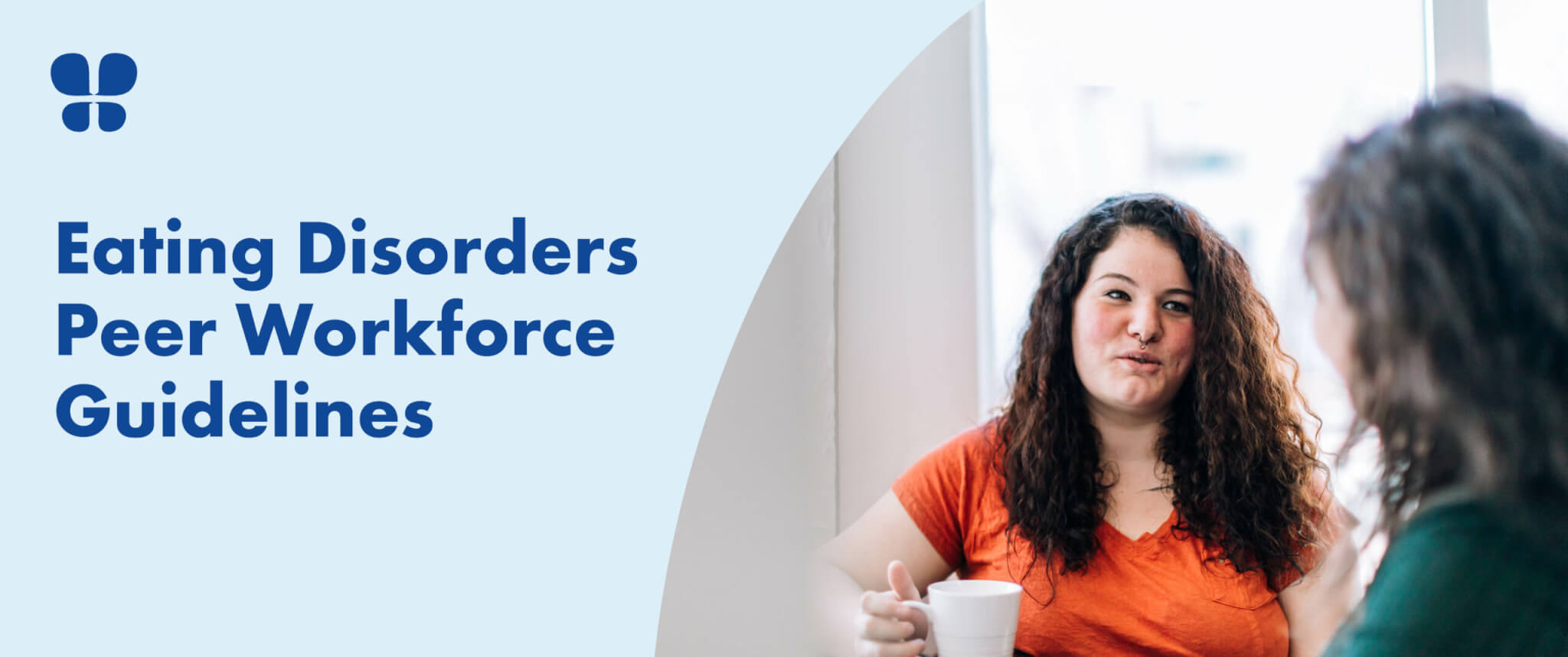
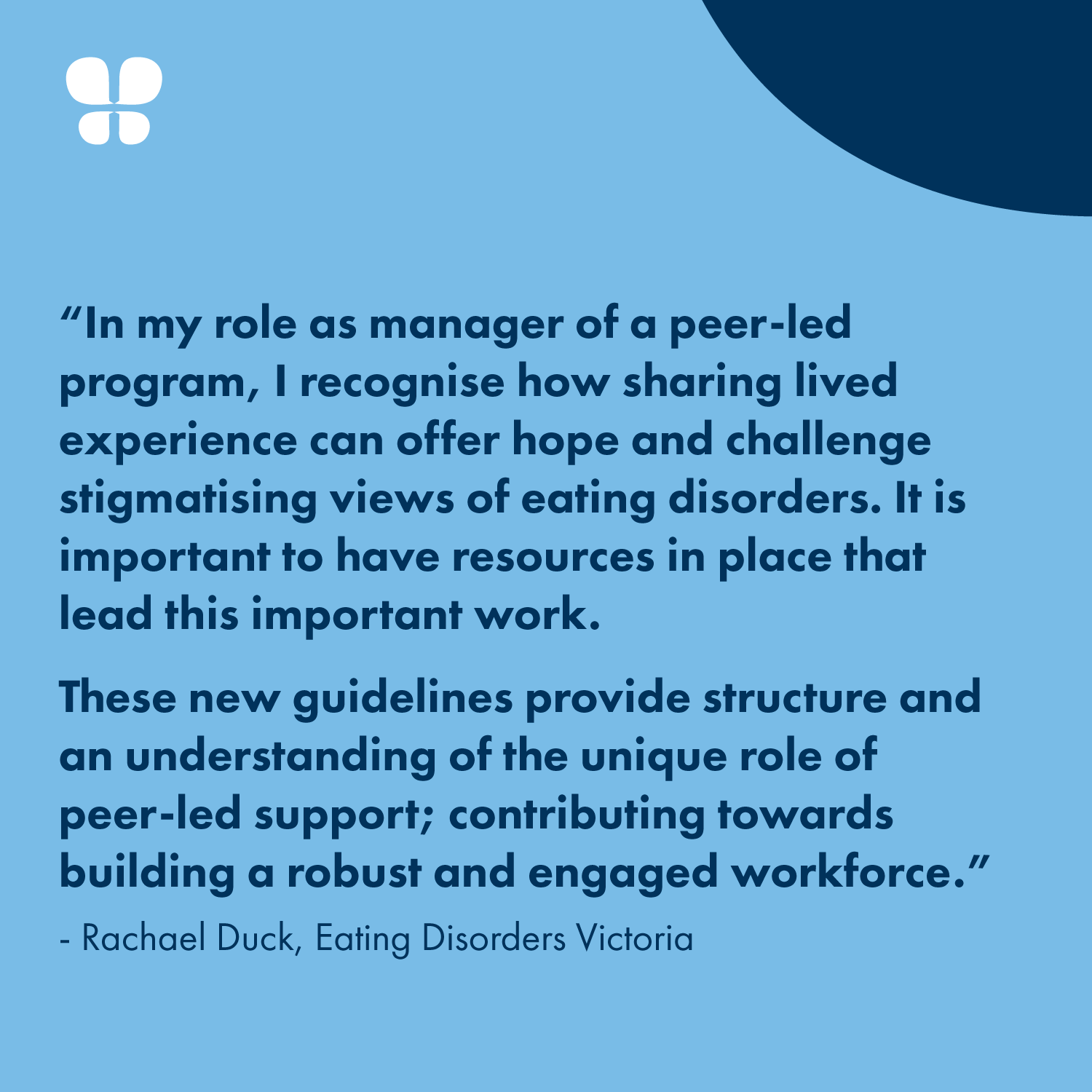
Butterfly has developed the Eating Disorders Peer Workforce Guidelines through extensive sector consultation and lived experience co-production.
The Guidelines set out principles to guide eating disorder peer work and clarify minimum education, training, recruitment, supervision and safe practice standards to support the ongoing development of a safe, effective and sustainable peer workforce for eating disorders.
Who are these guidelines for?
- Individuals working in, or seeking to work in, the eating disorders peer workforce
- Organisations that currently have or seek to incorporate an eating disorders peer workforce
- Education and training institutions
- Peak bodies
Download the Guidelines & learn more
Learning from Lived Experience
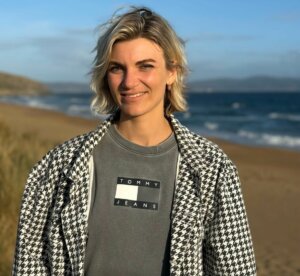 How peer workers use their lived experience to help
How peer workers use their lived experience to help
As one of Butterfly’s Peer Support Facilitators, Rhiannon runs our recovery support groups and peer mentoring programs, where she uses the insights and tools she gained in her own recovery to now help others on a similar journey. Rhiannon highlights the power of lived experience wisdom in recovery and what’s involved in Butterfly’s peer support programs.
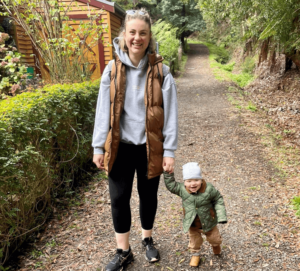 A day in the life of a peer support worker
A day in the life of a peer support worker
Clare, who is a peer worker and senior advisor with Eating Disorders Victoria’s Peer Mentoring Program, shares what’s involved in a peer work program and why utilising lived experience can be a powerful tool for ongoing recovery – for both the individual currently experiencing an eating disorder, and the peer worker who has recovered from an eating disorder themselves.
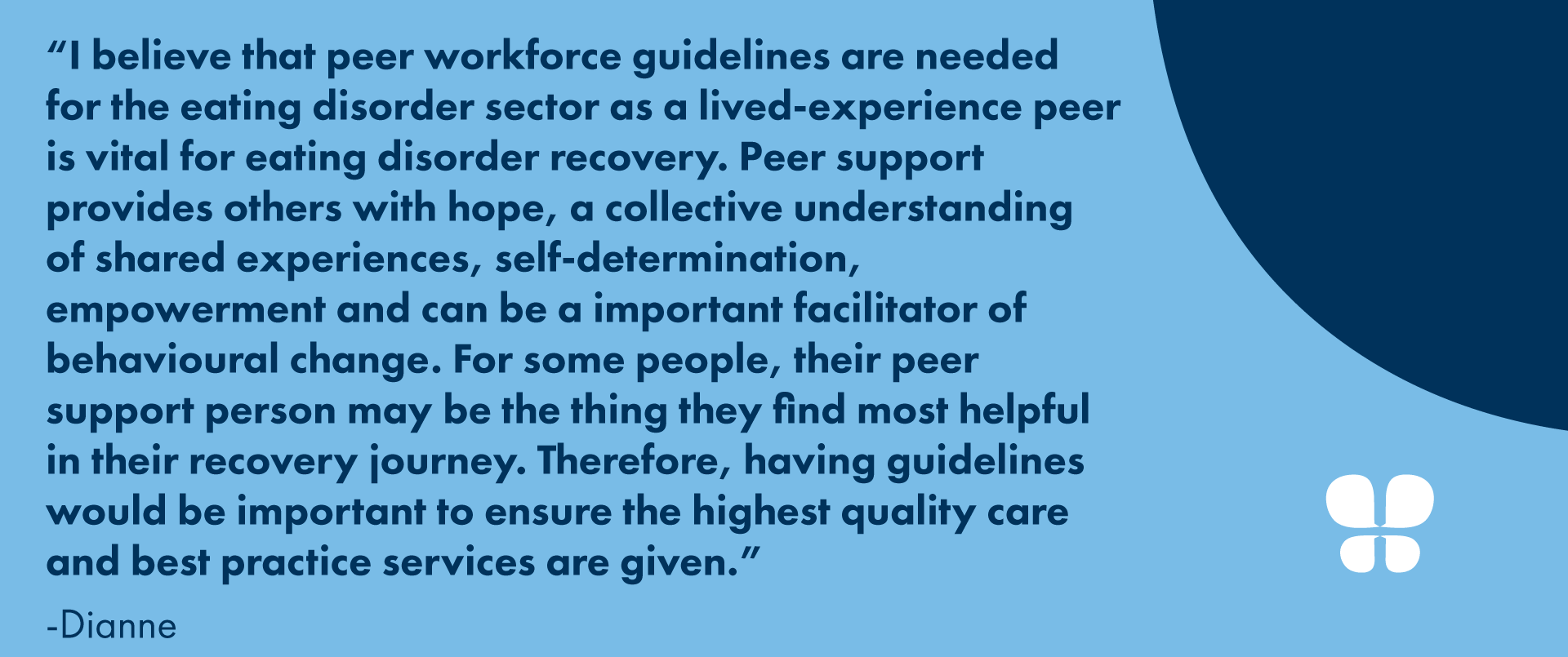
The Peer Workforce Guidelines were developed in consultation with:
- Dr Sarah Squire (Co-Chair), Head of Knowledge, Research & Policy, Butterfly Foundation
- Ms Shannon Calvert (Co-Chair), Lived Experience Educator & Adviser
- Dr Andrew Wallis, SCHN Eating Disorder Service Network Lead, Sydney Children’s Hospitals Network
- Ms Jade Gooding, CEO, Australia & New Zealand Academy for Eating Disorders (ANZAED)
- Ms Olivia Soha, Director and Certified Eating Disorder Recovery Coach, Uncovery
- Ms Megan Peart, Carer representative with experience of peer work
- Ms Lisa Jones, Lived experience representative and senior peer mentor
- Dr Ranjani Utpala, Clinical Psychologist and Project Consultant
- Dr Emma Spiel, Workforce Development Coordinator, National Eating Disorders Collaboration (NEDC)
- Ms Belinda Caldwell, CEO, Eating Disorders Victoria
- Ms Jane Rowan, Executive Director, Eating Disorders Families Australia
- Ms Hannah Beighton, Nurse Unit Manager, Wandi Nerida Residential Care
- Associate Professor Genevieve Pepin, Australian Eating Disorders Research and Translation Centre
- Dr Michelle Williams, Paediatrician, Paediatric and Adolescent Eating Disorder Service, Hobart
- Ms Bliss Jackman, Team Leader, Lived Experience Victorian Centre of Excellence in Eating (CEED)
- Catherine Walther
- Katelyn Keenan
- Sophie Smith
- Hannah Woolley
- Jeanette Chan
- Annie Jones
- Leanne Treloar
- Diana Sepulveda
- Clare Dehring
- Juliette McAleer
- Nic Juniper
- Vicki Hams
- Lisa Jones
- Gabi Cleaver
- Nadia Myers
- Clare Harris
- Leila Heinrich
- Kamania Butler
- Alison Parkinson
- Julia Quin
- Sarah Walker
- Stefan Tegelj
- Rachael Duck
- Quiney Lin
- Zahraa Alhirz
- Shannon De Luca
This list does not include participants (n =3) who wished to remain anonymous.
- Dr Michelle Blanchard, National Mental Health Commission
- Noelene Armstrong, Northern Territory Lived Experience Network
- Rachel Barbara-May, Alfred Child & Youth Mental Health Service
- Belinda Chelius, Eating Disorders Queensland




















